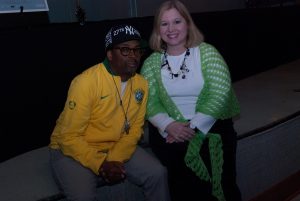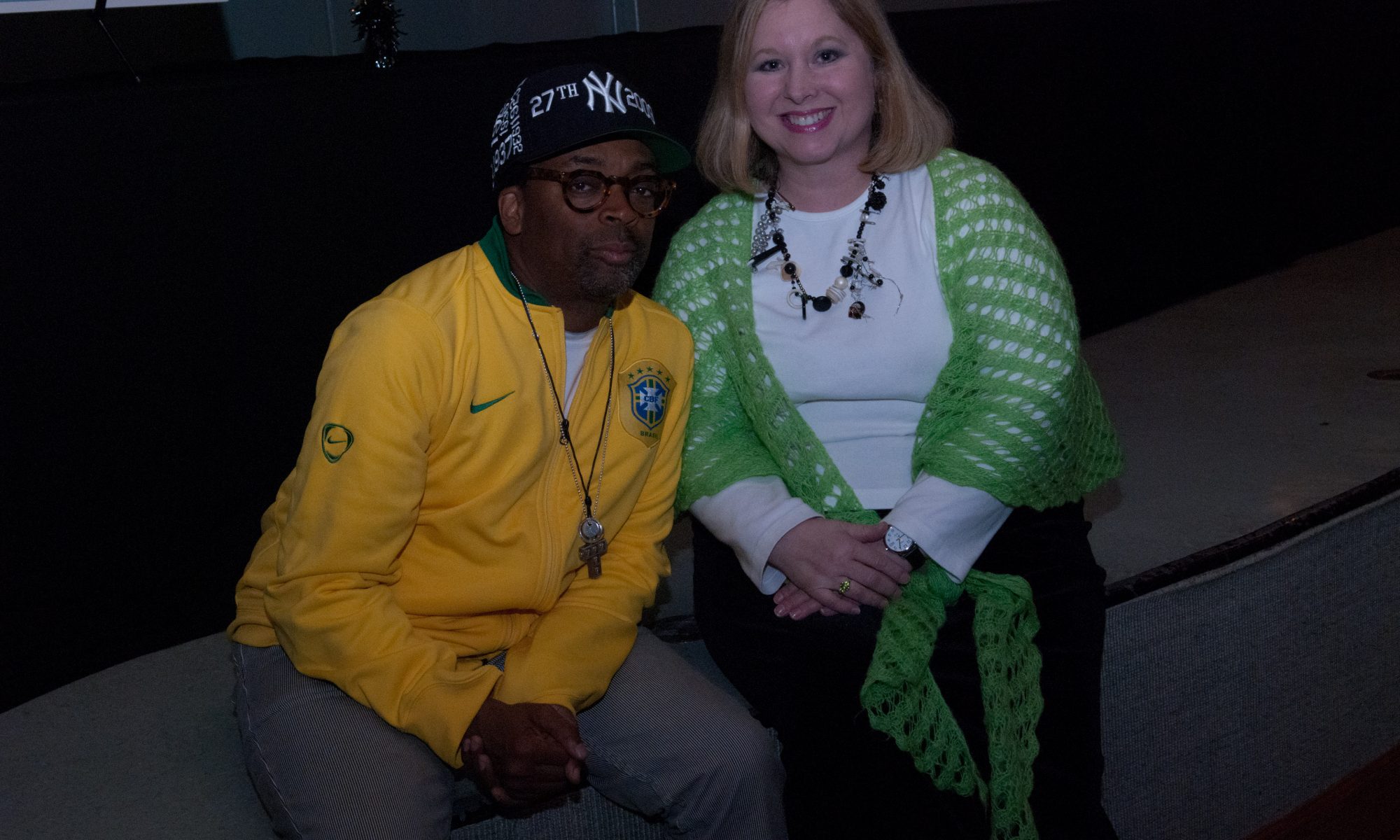I didn’t write about BlacKkKlansman when I saw at the theater at least partly because I wanted to like it more than I did…after all, Spike Lee is one of my favorite filmmakers.
Don’t get me wrong, there is much to recommend the film, but it is not what I consider top-drawer among Lee’s work. Now that the film is available for home viewing, it seems a good time to make a comment or two about it here.
Since I love Spike Lee, I couldn’t resist including this shot of me with the iconic filmmaker taken during a visit to Wake Forest.

With one notable exception, I think Spike Lee’s finest work comes from his perspective as a writer/director rather than work he adapts from other sources into screenplays written by or with others.
Most often, it is his more singular vision that captivates me; even when some of these films are flawed, they remain more interesting and, certainly, more culturally relevant than most movies in the marketplace of ideas.
For me, his finest work includes Do the Right Thing (1989)–which I still teach in my Media Theory and Criticism course–Malcolm X (1992), Bamboozled (2000), and my major exception, Get on the Bus (1996), which was written by Reggie Rock Blythewood.
There are certainly others among his films that I consider significant, and this film fits that description.
BlacKkKlansman is an entertaining look at a critically important issue. Based on the 2014 memoir (Black Klansman) by Ron Stallworth, the film tells the story of the first Black detective on the Colorado Springs police force as he infiltrates the local chapter of the Ku Klux Klan with the help of a White colleague.
The light tone running through much of the story makes the movie accessible to a wide audience.
And, that is part of what undermines the power and gravitas of the beginning and ending sequences, which make links among iconic cultural narratives, the yahoos depicted as characters in the film, and their ongoing (accelerating) legacy of hate and violence that is a blight on contemporary society.
It is the intense emotions evoked in me by the ending of the film that make me think of how much I could have felt at other points in the narrative…but did not…

Completely agree. Typically, a movie based on a true story overdramatizes in order to be more captivating. In this, the epilogue with short videos of the horror of the recent hatred on display resonate more deeply than the film depiction of past events. “A blight on contemporary society.” SO true.
Yep. We are on the same page about this picture.